SUMMARY
This is AI generated summarization, which may have errors. For context, always refer to the full article.
The Philippine anti-terror council (ATC) has designated the National Democratic Front of the Philippines (NDFP) as a terror group, fueling more fears political dissenters will be targeted next.
“Members of the NDF aka NDFP continue to lure and/or recruit people to join the New People’s Army (NPA), while the Communist Party of the Philippines (CPP) itself admitted and maintained, through public media releases as well as in CPP documents and revelations of former members, the direct and indispensable role of the NDF aka NDFP in its armed operations,” the ATC said in its Resolution No. 21 dated June 23, but uploaded only recently on its website.
Resolution No. 21 did not name any individual, except for CPP founding chairman Jose Maria “Joma” Sison and wife Juliet for the purpose of linking the CPP and the NDFP.
The NDFP in the past had been engaged in peace talks with various administrations. The NDFP’s peace consultants were, however, designated as terrorists in May 2021, alongside Sison.
The CPP-NPA was designated as a terror group back in December 2020, the same time as the Abu Sayyaf in the first resolutions made by the feared ATC.
Designation is an added power in the anti-terror law, where the council decides on its own in a process known only to them. Designated people can seek to delist themselves by appealing to the President.
In the Supreme Court oral arguments, designation was described by a justice as “dangerous” for its tendencies to be over broad. For instance, it allows detention for 24 days under the law even though a person is not designated, but was caught only in the company of a designated person.
Designation would result in the freezing of assets. Even if an eventual proscription case fails at the Court of Appeals (CA), delisting would not be automatic.
Proscription is a distinct power held exclusively by the courts, which is why petitioners have argued before the Supreme Court that the government can just choose the easier mode of designation where there is no due process, rather than go through a laborious trial.
Fears
The NDFP’s designation fuels fears that more progressive figures will be targeted, because if the government cannot prove ties to the armed NPA, then it will establish connections to the NDFP.
For example, the National Task Force to End Local Communist Conflict (NTF-ELCAC) has sought the disqualification of the Kabataan Partylist from the 2022 elections by alleging the group’s supposed communist ties. The party list has denied this, and has filed with the Commission on Elections (Comelec) a manifestation of intent to join the party list elections in 2022.
“Are they NPA? The answer is no because ang NPA, sila ‘yung may hawak ng baril (because NPAs hold guns), but they are part and parcel, they are a component of the triumvirate, they are part of the CPP, and they are part of the NDF, but they are not necessarily part of the NPA,” NTF-ELCAC legal spokesperson Marlon Bosantog earlier said in a Rappler podcast, Law of Duterte Land, referring to Kabataan.
Kabataan Representative Sarah Elago, as well as other progressive leaders, have been cleared by the Department of Justice (DOJ) of war crime and kidnapping complaints in a case of supposedly radicalizing a youth activist. In that resolution, prosecutors said there was “no evidence that would connect the respondents with the CPP-NPA-NDF.” Justice Secretary Menardo Guevarra had junked the police’s petition for review of the dismissal of that case.
Bosantog also pointed out in that interview that when President Rodrigo Duterte ended the peace talks in 2017, he only proclaimed the CPP-NPA as a terror group.
“Hindi pa nasama ang NDF noon (NDF was not included back then),” said Bosantog.
Rappler asked National Union of Peoples’ Lawyers (NUPL) Edre Olalia about the legal implications of the designation.
“Even as a human rights lawyer and student of international humanitarian law, there is well-founded possibility and precedent that these kinds of designation portend further questionable designation and other arbitrary measures against select political dissenters,” said Olalia.
“What is disturbing is its far-reaching prejudicial implications to the peace process and the impact on fundamental rights and basic freedoms,” Olalia added.
The Supreme Court case against the anti-terror law has been submitted for the decision of justices. Chief Justice Alexander Gesmundo earlier said they hope to have a draft before the end of 2021.
The NTF-ELCAC has warned that when the Supreme Court case is decided, they will go “full-blast” in filing legal cases against progressive leaders they accuse of being communists.
– Rappler.com
Add a comment
How does this make you feel?
![[PODCAST] Law of Duterte Land: Captain Ri and all the president’s men](https://www.rappler.com/tachyon/2021/05/Law-of-DuterteLand-sq.jpg?fit=449%2C449)
![[PODCAST] Law of Duterte Land: The law of NTF-ELCAC](https://www.rappler.com/tachyon/2021/05/Law-of-DuterteLand-NTFELCAC-SQ.jpg?fit=449%2C449)
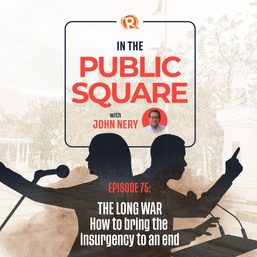
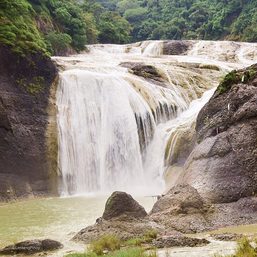
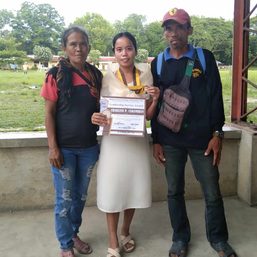
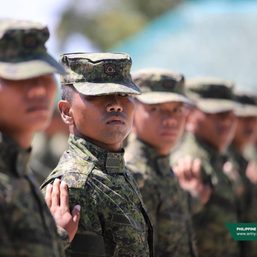

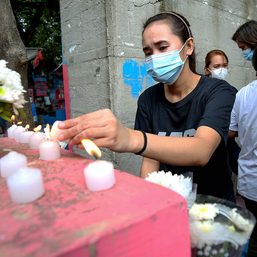




There are no comments yet. Add your comment to start the conversation.